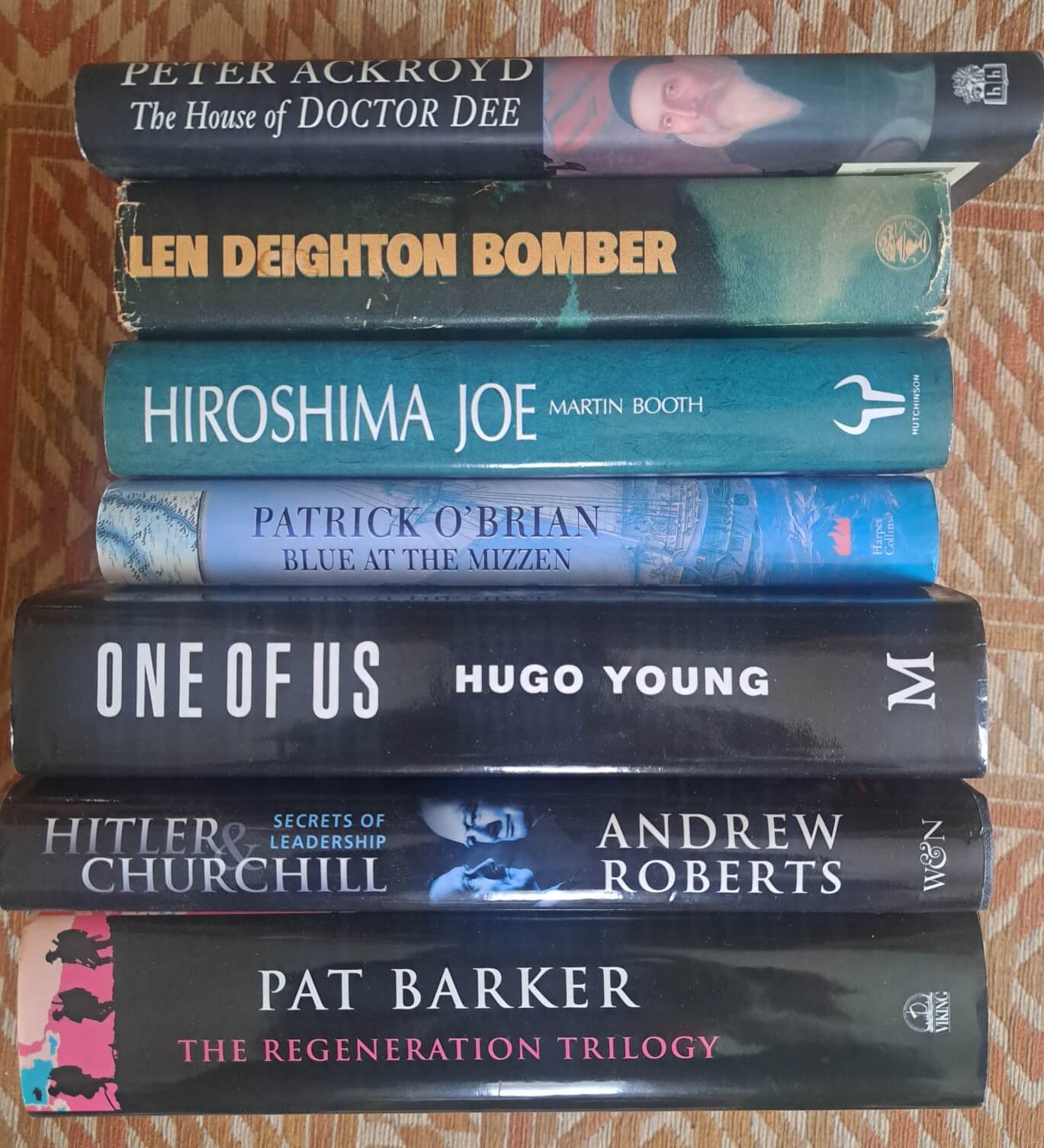I've had these books for years. I used to be a book collector. I wanted to have a big library of books. That was when I was still living in England, several decades ago.
When I moved to Japan most of my books went into storage in my parents' attic for several years.
Eventually, in 2008, I sorted through the books, discarded several box loads, and shipped over a dozen boxes of books to Japan.
It cost an arm and a leg and there was a problem getting the boxes through customs which was only resolved by a very kind official in Osaka.
Now, in the age of smart phones, Kindle and Gutenberg, I buy and read far fewer paper books than I used to.
Gradually, owning a library of books, many of which have sat on the shelf unread ever since I unpacked them 16 years ago, began to feel burdensome. So for the last few years I have slowly been thinning out my book collection.
There is a core collection of books that I want to keep, but the ones that are peripheral to my primary interests, and which I have not opened and am unlikely to read again, really ought to go, I feel.
Yes, I have been influenced by the minimalist movement in recent years. I'm not a complete minimalist, but more of a "moderate minimalist". I've been getting rid of other stuff as well as books. My old cameras have gone, I got rid of my printer. If I need to print anything I put the document on a memory stick and print it out in a 7-11 convenience store.
And so this week I am giving away the books in the photo to anybody in my circle here in Hiroshima who wants them.
Let's have a look at the books:

1. The House of Doctor Dee, by Peter Ackroyd (1949~)
First edition, 1993.
Peter Ackroyd's novels would be a good choice for anybody with an interest in London. The setting for this novel is Clerkenwell (incidentally, where my grandfather was born), where the main character, Matthew Palmer, inherits a house that was once the home of the Elizabethan magus and alchemist, Doctor Dee. (Actually, Dee lived in Mortlake.) The novel switches between the two periods and intertwines the life of Doctor Dee with that of Matthew Palmer.
2. Bomber, by Len Deighton (1929~)
First edition, 1970.
I read a paperback edition of Bomber way back in the late 1970s, and bought this first edition hardback years later.
The novel tracks the progress of an RAF bomber raid over Germany in June 1943 from multiple perspectives on the British and German sides. Due to a series of mishaps, the bombers end up bombing a the wrong place.
If you are a World War Two nerd who likes technical details, this would be a good reading choice.
3. Hiroshima Joe, by Martin Booth (1944~2004)
First edition, 1985.
Little did I know, when I bought and read this novel in 1985 that I would end up spending several decades of my life in Hiroshima. (It was the second of two novels that touch on the dropping of the atom bomb on Hiroshima to be published in the mid 1980s. The other one was Empire of the Sun (1984), by J. G. Ballard, which made a much bigger impression on me.)
The main character, Joe, was a British army officer captured in Hong Kong by the Japanese and transported to a slave labour camp outside Hiroshima, where he witnesses the atom bomb. Broken by his experiences, he lives in a cheap hotel in Hong Kong, haunted by his memories.
4. Blue at the Mizzen, by Patrick O'Brien (1914~2000)
First edition, 1999.
This is the last in the series of nautical novels set in the Napoleonic era. The Battle of Waterloo has brought the Napoleonic warss to a victorious conclusion for the allies. Captain Jack Aubrey sails to Chile to chart the coast and assist the independence struggle against Spain.
By the way, the film Master and Commander, based on this series, is well worth viewing. Russell Crowe is excellent as Captain Jack Aubrey.
5. One of Us, by Hugo Young (1938~2003)
First edition, 1989.
This is a classic biography of Margaret Thatcher.
6. Hitler and Churchill, Secrets of Leadership, by Andrew Roberts (1963~)
First edition, 2003.
This is a comparative study of the leadership techniques of the two war leaders. We discover how Churchill learned from his mistakes, whereas Hitler didn't.
7. The Regeneration Trilogy, by Pat Barker (1943~)
Third edition, 1995.
This is a trilogy of novels, Regeneration (1991), The Eye in the Door (1993), and The Ghost Road (1995), about the First World War and its traumas as experienced by British soldiers.
I will continue to thin out my book collection in the coming months.
Cheers!
David Hurley

